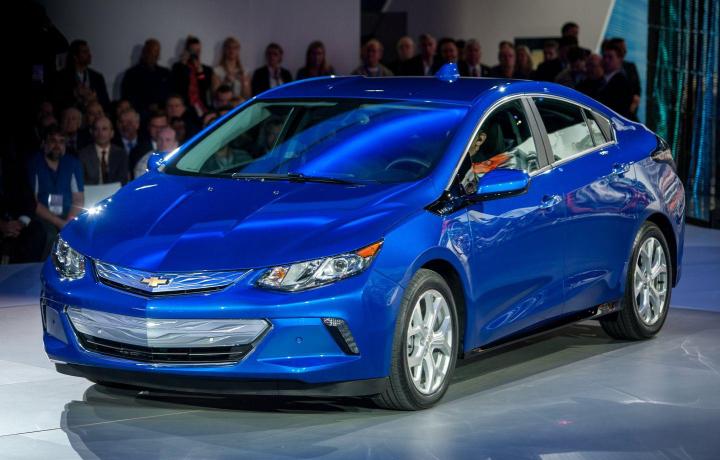
Thanks to the significantly improved range from a larger 18.4-kWh lithium-ion battery, Chevrolet estimates that buyers will be able to travel on electricity alone for 90 percent of their trips. “We listened to our customers,” said Andrew Farah, vehicle chief engineer, “They were very clear when they told us that they wanted more range, and a fun driving experience behind the wheel. We are confident that the 2016 Volt delivers both.”
The 2016 Volt makes 101 horsepower from a 1.5-liter four-cylinder engine, which functions as a range extender. This is paired with an electric motor for a total of 149 HP and 294 pound-feet of torque. The fuel-sipping gas engine by itself is rated at 42 mpg.
Chevrolet claims the reworked Volt can travel up to 1,000 miles on a single tank of fuel if recharged regularly. A single charge and full tank of gas will deliver a range of 420 miles.
By comparison, the next generation Nissan Leaf EV is estimated to achieve over 100 miles of range, the 2016 Toyota Prius is expected to achieve 13 miles of all-electric range and 54 mpg total, and the upcoming Tesla Model III could manage between 200 and 250 miles on a single charge. From this range of, well, ranges, it’s clear that the different EV manufacturers are each pursuing different strategies and market segments.
While the Volt’s range-extender powertrain continues to play second fiddle to both all-electric and full hybrid vehicles, the automaker expects that a longer electric range and more fuel efficient gas engine will succeed in attracting more buyers than the previous generation.
Editors' Recommendations
- 2024 Chevrolet Silverado EV is an electric pickup built for work and play
- 2020 Chevrolet Bolt EV rated at 259 miles of range, outpacing most rivals


